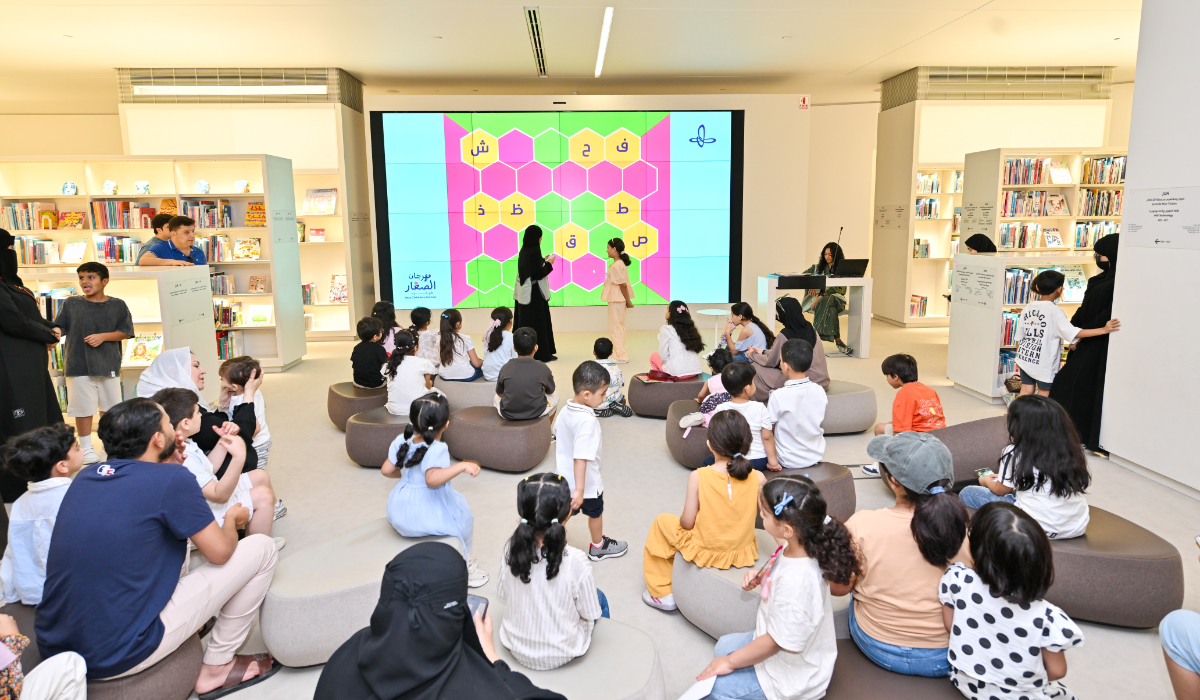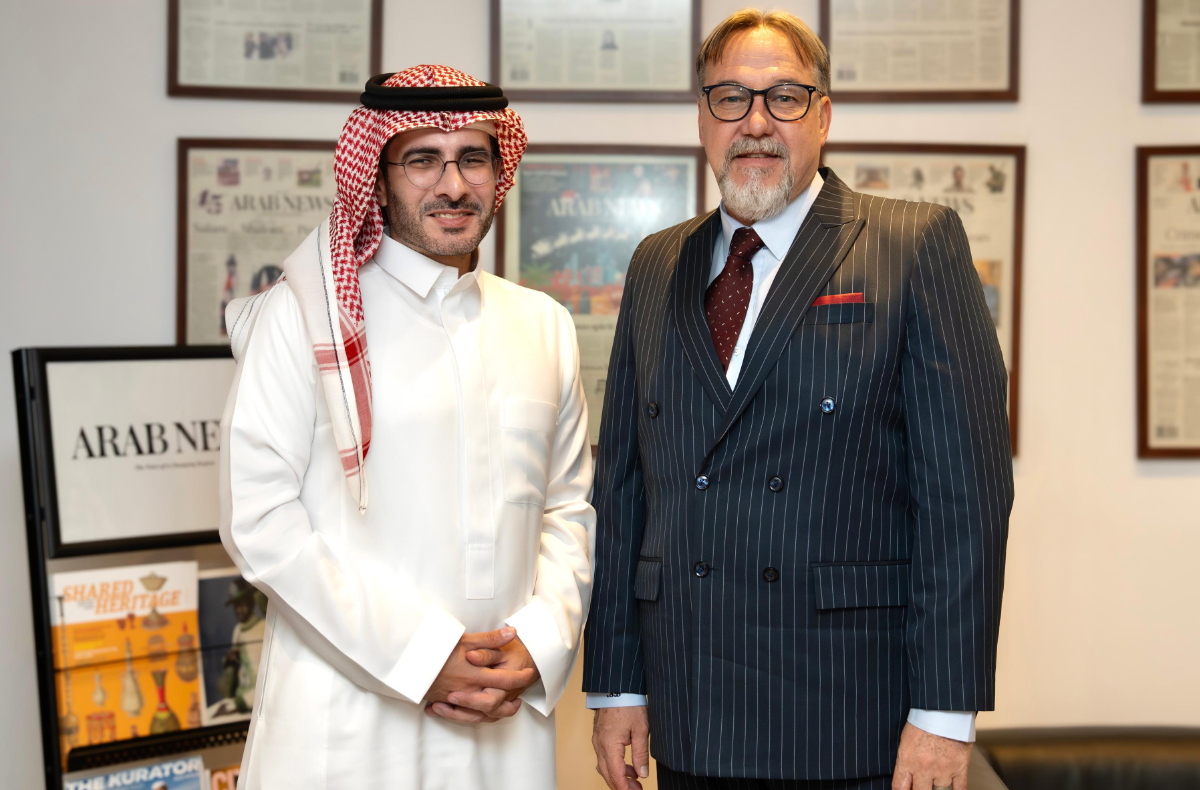RIYADH: Artificial intelligence is revolutionizing the landscape for small businesses, offering innovative solutions that enhance efficiency, creativity, and competitiveness. As technology evolves, many entrepreneurs are leveraging AI tools to streamline operations and drive growth.
One of the most significant advantages of AI is its ability to automate repetitive tasks. Tools like chatbots can handle customer inquiries around the clock, freeing up valuable time for business owners to focus on strategic initiatives.
This not only improves customer service but also enhances overall efficiency.
AI-powered analytics platforms can process vast amounts of data, providing actionable insights that help businesses make informed decisions based on market trends and consumer behavior.
In this dynamic environment, AI is transforming small business operations.

A notable example is Hams Nabeel, a working mother who founded her business, Thikra, to preserve cherished memories for families.
“There was a clear need for my business idea,” she told Arab News. “Since I had my daughter, I wanted to preserve her hospital items — like her hat, blanket, and hand bracelet — all in one place.”
AI has become crucial in Nabeel’s entrepreneurial journey, streamlining various aspects of her operations. “ChatGPT helped me expand my business by crafting a clear structural plan,” she said.
What typically took weeks can now be accomplished in minutes, providing clarity when she faced uncertainties.
AI also assisted Nabeel in comparing 3D printers and defining her business’s vision. “AI guided me in crafting my mission and vision and even generated social media posts,” she said.
For financial management, she relies on QuickBooks, which automates tasks and offers valuable insights. Furthermore, Nabeel uses Salla, a website creation tool that simplifies online store management.
“Creating a business is so easy with Salla,” she said, allowing her to focus on creativity rather than technical details.

Screenshot of a page in the AI-enabled powered Salla platform.
In creative sectors, AI tools are essential for content creation and design. From generating social media posts to developing marketing materials, AI helps small business owners maintain a robust online presence without extensive resources.
“We have traditionally always been creatives before tech developers, but with AI it is now enabling us to combine both,” Denis Bodart, who operates a creative animation agency called Feed Me Light in London and Riyadh, told Arab News.
“We are now building more creative tools and AI products, including a new SaaS (Software as a Service) platform focused on the out-of-home advertising sector, which allows us to dynamically display content on various screens at once.
“Imagine walking through a city filled with screens that communicate and showcase engaging, interactive content. For example, the displays can respond to the latest football or esports results, presenting teams in an exciting manner.
“They can also adapt to weather conditions and customize their content based on audience presence in events, venues, and shops.”
Bodart highlighted how AI agents support his team. “By training AI agents to understand our business more, we can use these agents to help support our teams, providing a helping hand with more repetitive tasks such as receipts, bookings, data fetching, or even helping enhance our marketing and sales teams, amplifying our business’s online presence.”
He added: “For Saudi Arabia, the strategic integration of AI holds immense potential to create a truly transformative and positive impact on how they approach upcoming global events such as the Winter Olympics, Asian Cup, and World Cup events.
“This technology can significantly elevate fan engagement, optimize operations, and craft unparalleled experiences, setting new benchmarks for global sporting events hosted in the Kingdom.”

Denis Bodart, who runs a creative animation agency called Feed Me Light in London and Riyadh, says AI helps small business owners maintain a robust online presence without extensive resources. (Supplied)
Integrating AI allows small businesses to provide seamless customer experiences. Automating processes like order management and payment processing enhances customer satisfaction and loyalty.
“AI has completely changed the game for small creators like me,” Salwa Beauty, a prominent social media influencer in Saudi Arabia, told Arab News. “It’s like having a full creative team in your pocket.”
Salwa utilizes AI to generate content ideas, animate scenes, write captions, and redesign photos — tasks that once required extensive time and resources.
For her fitness content, Salwa has eliminated the need for models or physical products. “I can animate people, create scenes, and even showcase products being used — all without hiring anyone or incurring upfront costs,” she said.
This capability allows her to build a complete brand presence independently, showcasing the democratizing power of AI.
The freedom AI provides is substantial for small businesses. By enabling entrepreneurs to launch ideas, test visuals, and create professional content quickly and affordably, AI empowers them to stand out in a crowded market.
“AI is literally my assistant now,” said Salwa.
AI also reduces costs associated with traditional modeling. Additionally, AI facilitates content creation and scheduling, allowing businesses to maintain a consistent online presence effortlessly.
Platforms like Salla and Zid are enhancing the landscape for small businesses in Saudi Arabia. These platforms leverage AI to optimize customer interactions, enabling efficient order scheduling, carrier connections, and targeted marketing messages based on customer data.

Screenshot of a page in the AI-enabled Zid platform.
Such features not only save time but also enhance the overall customer experience.
AI has emerged as an invaluable asset for small businesses, offering innovative solutions that enhance productivity, creativity, and financial management. Integrating AI tools can significantly transform the entrepreneurial journey, enabling working mothers and small creators to thrive in today’s competitive market.
With AI as a partner, the possibilities for growth and success are limitless. As small businesses in Saudi Arabia continue to embrace these technologies, they open the door to a future where creativity and efficiency flourish, paving the way for new ideas and opportunities.
AI is a powerful ally for small businesses, empowering them to optimize operations, enhance marketing efforts, and improve customer experiences. As more entrepreneurs embrace these technologies, the potential for growth and innovation continues to expand.












































